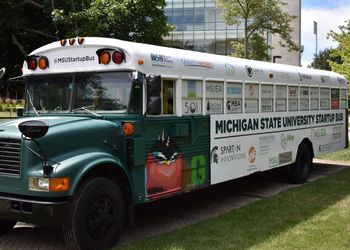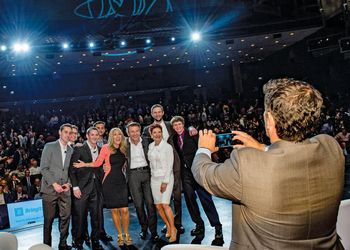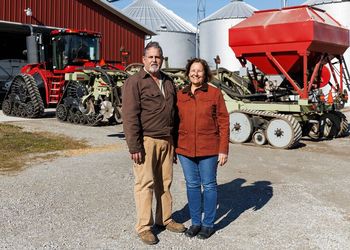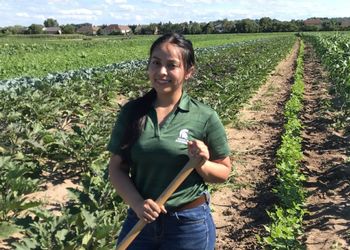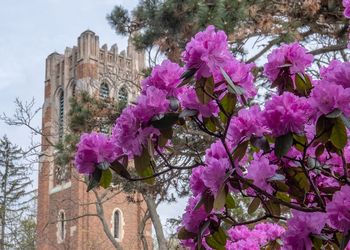Lead the Voyage

Lead the Voyage
Once the ship is steady, it's time to step back and consider the larger mission.
October 1, 2017Early on, a new company must often fight just to make it another day. But over time, their challenges change. They shift from a survival mentality to one of working to serve their customers better and living out their larger mission. Entrepreneurs can begin to think bigger about their impact on the world.
Here are some tales on how to build that impact.
Investing in Innovation
 David Washburn is the executive director of the Michigan State University Foundation.
David Washburn is the executive director of the Michigan State University Foundation.
Can you explain MSU Foundation’s role in terms of its link to entrepreneurship?
The MSU Foundation plays several key roles related to entrepreneurship at Michigan State. Along with providing funding for a number of MSU-administered research programs, we also deploy resources and support for MSU Technologies, MSU’s intellectual property management organization. Through our venture development organization, Spartan Innovations, we help our students and faculty start new companies. Through Red Cedar Ventures, our venture investment organization, we offer pre-seed and follow-on investments in MSU-based start-ups. Finally, we manage the University Corporate Research Park (UCRP), which focuses on creating and managing physical places where MSU start-up companies can operate, grow and thrive.
Can you give examples of the support you provide?
We help entrepreneurs dive deep into their technologies, exploring where they fit into the marketplace. At Spartan Innovations, our mentors and entrepreneurs-in-residence help inventors plan how to take their technologies from the lab to prototype to product. With Red Cedar Ventures, we provide seed money to get companies launched, and through our place-making practice, the UCRP, we offer office and laboratory spaces near campus, so they can stay in the Lansing area and continue work on their product.
What’s a product that’s recently gone through this process?
MTBI Sense, a company recently formed by MSU faculty members Marcos Dantus and Gary Blanchard, licensed technology from MSU and have created an inexpensive head-impact sensor for athletes susceptible to head injuries. A wearable headband with a sensor, their product helps determine the location and severity of impact. The company is currently taking orders and building out distribution channels.
How do you determine whether something your team works on is a success? Does it have to be the next Facebook?
Something as world-changing as Facebook would be fantastic! Something bold. Something before unseen. Until then, we continue investment, looking at value creation in new ways, including the review of follow-on funding from the venture capital community, product sales and distribution, and job creation. Success looks like a thriving entrepreneurial ecosystem, where MSU faculty, researchers, staff and students are disclosing new inventions to MSU Technologies, accessing resources and bringing their ideas to market. The expectation is that these investments have the ability to create a return.
What advantages does the MSU Foundation bring to its work with MSU innovators?
Our primary advantage, thanks to successful intellectual property commercialized 25 years ago, is that we are in a much stronger position than many other public research universities. The depth and breadth of the resources put into place in recent years stacks up to the best research universities on the planet.

What do you get when you take a social movement and add in novel, brilliant technology?
Recovery Park Farms, a Detroit-based agricultural enterprise that’s growing opportunity far and wide. Add some water and sunlight, and you have a revitalized community. Recovery Park Farms is a non-profit farm that provides freshly-grown, USDA organic certified produce to Detroit area chefs. Using hydroponic greenhouses, this urban farm can grow specialty fruit, vegetables, herbs and edible flowers that grace the plates of Detroit area restaurants. The best part? The produce is delivered within 24-48 hours from harvest for optimum freshness.
Thanks to help from LED specialists at MSU, the team can now grow their greens year-round. Erik Runkle from the College of Agriculture and Natural Resources researched custom-designed greenhouse lighting, which replicates sunlight and optimizes crop yield, size, color and flavor. The project was a collaboration with the Michigan Corporate Relations Network and combined expertise from Lansing, Grand Rapids and Detroit.
Saving Lives, one Bar at a Time
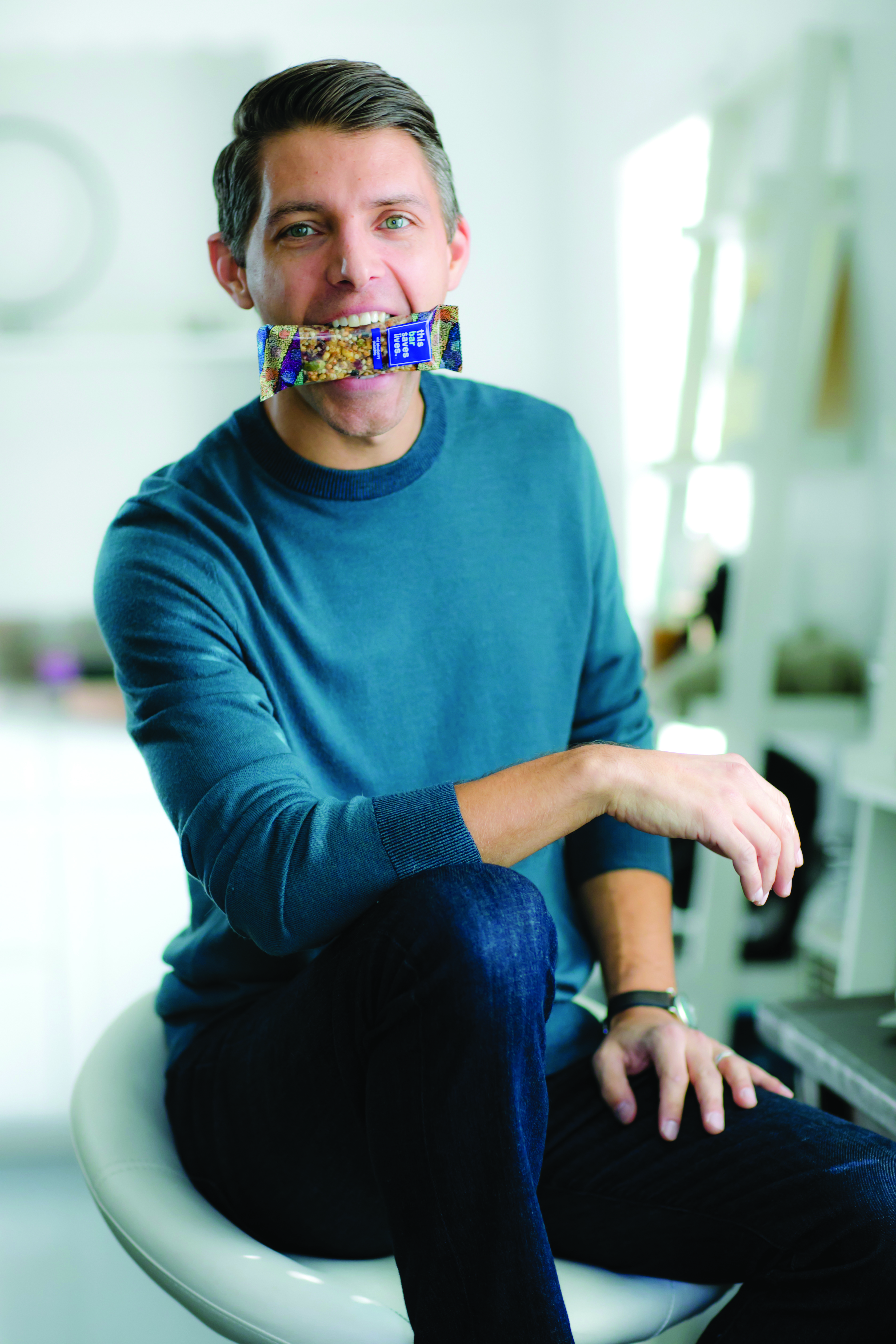
turned-activist who
got creative battling
world hunger.
When an entrepreneur uses creativity to save lives, magic happens.
Ryan Devlin has done just this with his company, This Bar Save Lives. For every nutrition bar sold, This Bar Saves Lives donates a packet of life-saving food to a child in need.
“We built our give-back brand on a simple idea: it feels good to do good,” Devlin said. “Millions have supported our mission and we’re constantly challenged to continue disrupting the forces of global food space and impacting lives around the world.”
Devlin founded This Bar Saves Lives in 2013 after taking a humanitarian trip to Liberia, where he felt terrified by what he saw: firsthand global hunger. Shortly after returning to the U.S., Devlin took immediate action and steered his career from acting in a new direction: social entrepreneurship.
To date, This Bar Saves Lives has distributed over 750,000 packets to starving children in third-world countries, such as Haiti, Democratic Republic of the Congo, Philippines, Nepal, and Guatemala.
This company has forged unique corporate social responsibility partnerships with brands such as Whole Foods, Starbucks, Google, and Target. Devlin, a 2003 Broad College of Business graduate, inspires and educates people with everyday opportunities on how to create a life-changing impact through one simple act.
Devlin’s creativity earned him a spot on Fast Company’s 2017 list of 100 Most Creative People in Business.
In spite of This Bar’s continuing success and growth, Devlin and his team remain committed to what inspired them in the first place.
“Our mission has and will continue to be the same as when this company was started,” he said. “How we deliver on that promise has grown and evolved a bit over the years, as we’ve expanded our giving network and begun to explore additional product categories. Simplicity and clarity are our greatest strengths, which have allowed us to stay focused.”
Helping Faculty Succeed in the Marketplace
Forrest Carter offers a few tips for faculty innovators and entrepreneurs
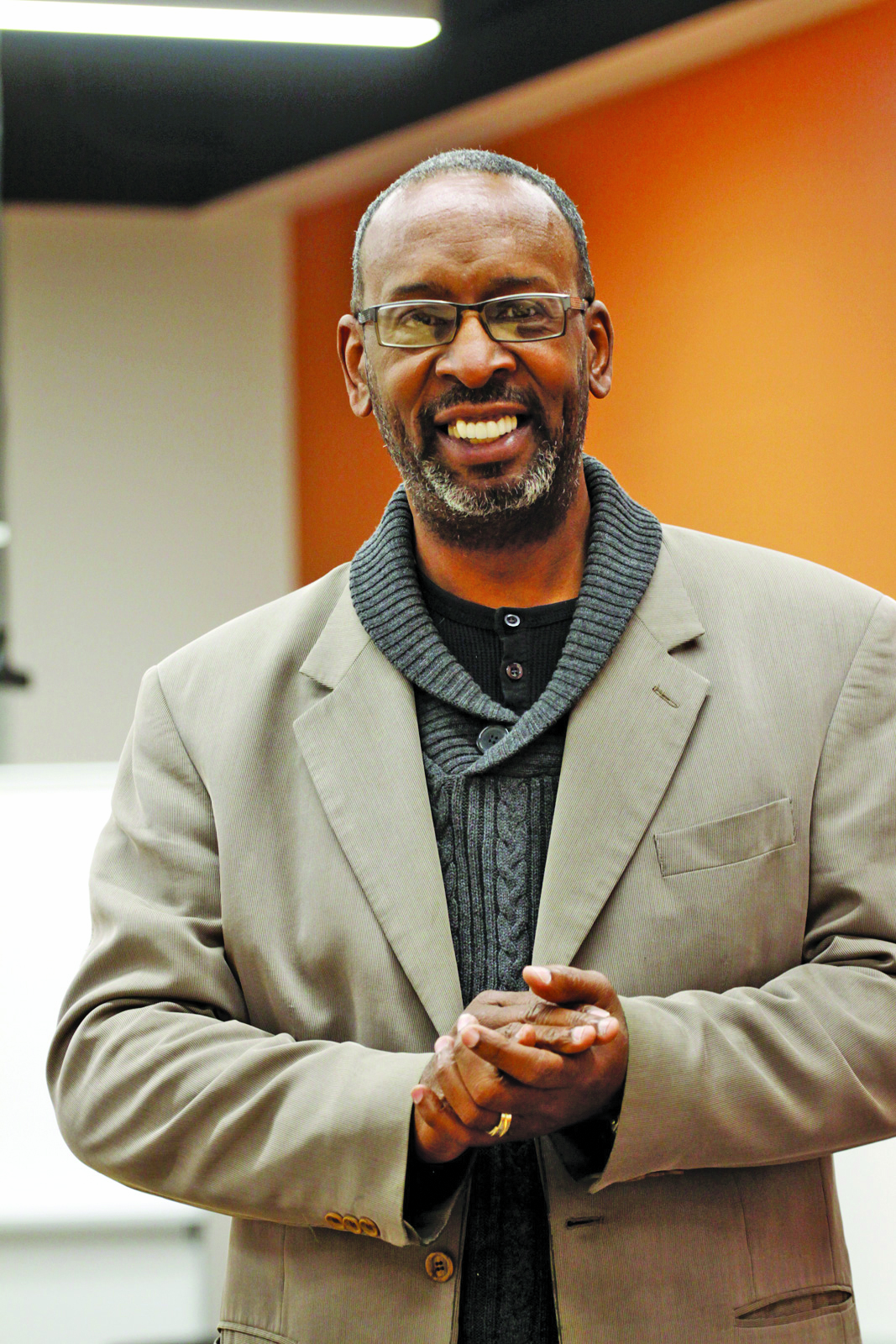 In the Eli Broad College of Business, students have access to real-world exposure, encouragement, and financial support through the Burgess Institute for Entrepreneurial Innovation. But students aren’t the only ones with a seat at the table.
In the Eli Broad College of Business, students have access to real-world exposure, encouragement, and financial support through the Burgess Institute for Entrepreneurial Innovation. But students aren’t the only ones with a seat at the table.
Forrest S. “Sam” Carter is the institute’s faculty director. He regularly works with professors hoping to commercialize their ideas. To them (and all other aspiring entrepreneurs), he offers this advice:
Do your homework
It's never too early to consider market viability. If market viability doesn't drive the creation process, it should. Put market research ahead of creative concepts. Let market data drive commercialization.
Adapt or die
What do you do if you determine your original big idea isn't market worthy? Don't obsess over it. Pivot. Think of ways your initial concept could be adjusted to become marketable.
Call in reinforcements
Seek the experts of others in the areas where you're weakest. Invite collaborators. They can help you think through your designs, and surmount legal details when applying for licensing and patents, and forming a company. "Remember you shouldn't have to feel alone: there's an MSU village--including MSU Technologies, Spartan Innovations, The Burgess Institute of Entrepreneurship and Innovation, and more--with deep experience to help turn great ideas into thriving enterprises.



